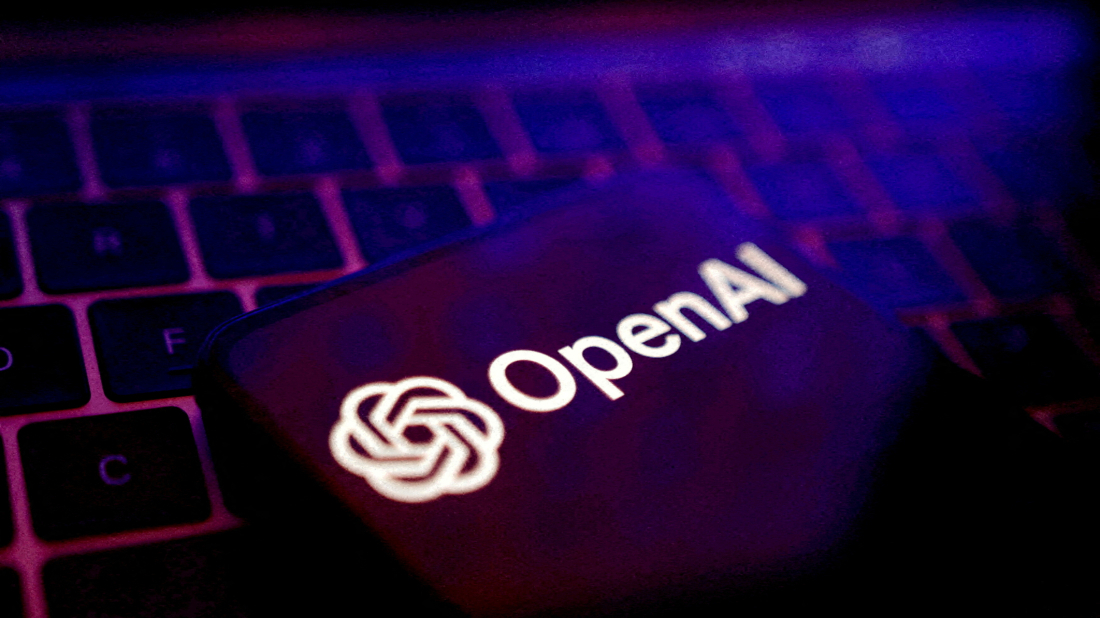live Trump: Khamenei is dead
Follow the latest developments and global reaction after the U.S. and Israel launched “major combat operations” in Iran, prompting reta...

OpenAI announced Monday that it will retain its nonprofit governance structure while proceeding with a major restructuring of its for-profit subsidiary to enable greater capital-raising capacity amid intensifying competition in the artificial intelligence sector.
The decision follows months of internal debate, public scrutiny, and legal challenges—including a prominent lawsuit from Elon Musk, who accused OpenAI of deviating from its original mission to develop AI for the benefit of humanity.
“We made the decision for the nonprofit to stay in control after hearing from civic leaders and having discussions with the offices of the Attorneys General of California and Delaware,” the company said in a blog post. OpenAI added that it would work closely with stakeholders including Microsoft, its largest investor, and newly appointed nonprofit commissioners to refine the structure.
For-Profit Reorganization Amid Funding Push
In December, OpenAI revealed plans to convert its for-profit operations into a public benefit corporation, a model designed to attract larger funding rounds without compromising a commitment to social impact. On Monday, OpenAI clarified that its nonprofit parent will retain control of the for-profit entity and become a significant shareholder in the restructured arm.
This hybrid structure aims to balance commercial viability with the company’s stated mission of ensuring AI serves public interest, a challenge that has drawn increasing scrutiny as OpenAI's valuation and influence have soared.
In March, OpenAI announced it was seeking to raise up to $40 billion in a new funding round led by Japan’s SoftBank Group, contingent on completing its for-profit transition by the end of 2025. That round would value the company at an estimated $300 billion, reflecting investor optimism in its pursuit of artificial general intelligence (AGI)—AI systems that surpass human-level intelligence.
Governance Under the Spotlight
OpenAI’s complex corporate structure, blending nonprofit oversight with commercial activity, came under intense scrutiny in November 2023, when the company’s board briefly removed CEO Sam Altman amid concerns over leadership and transparency. Altman was reinstated within five days after strong support from employees and backers.
The restructuring plan seeks to avoid future conflicts by reinforcing nonprofit oversight, while allowing the for-profit subsidiary to access the capital needed for AI model development, infrastructure, and global expansion.
Regulatory and Ethical Concerns
The company acknowledged concerns around asset allocation between its nonprofit and for-profit arms and said it would ensure transparency and fairness in managing resources. Critics have argued that OpenAI’s increasing commercial focus could undermine its founding commitment to developing safe and universally beneficial AI.
As the global AI race accelerates—with rivals such as Google DeepMind, Anthropic, xAI, and Meta making parallel strides—OpenAI’s structural realignment is viewed as critical for keeping pace while navigating the ethical and regulatory responsibilities unique to the field.
OpenAI said further details of the restructuring will be released following continued consultations with regulators and key partners.
Follow the latest developments and global reaction after the U.S. and Israel launched “major combat operations” in Iran, prompting retaliation from Tehran.
Tensions between the U.S. and Iran are escalating, with Washington ordering a significant military build-up in the region and multiple countries evacuating diplomatic staff amid fears of further instability.
Two people were killed and around 40 injured when a tram derailed in central Milan on Friday (27 February), a spokesperson for the local fire service said.
Iran’s top diplomat said that the next round of nuclear talks is expected in less than a week after what he described as “progress in the most serious exchanges” between Tehran and Washington. The statement follows the third round of nuclear talks on Thursday (26 February) in Geneva.
Pakistani air strikes hit a weapons depot on the western outskirts of Kabul overnight, triggering hours of secondary explosions that rattled homes across the Afghan capital and left residents fearing further violence.
South Korea will soon cease to be one of the few countries where Google Maps does not function fully, after its security-conscious government reversed a two-decade-old policy and approved the export of high-precision map data to overseas servers.
New research suggests 40,000-year-old carved objects from south-western Germany bear repeated marks arranged in organised sign sequences similar to early proto-cuneiform, although they are not regarded as a form of writing.
The chief executive of Google DeepMind, Demis Hassabis, has called for more urgent research into the risks posed by artificial intelligence, warning that stronger safeguards are needed as systems become more advanced.
NASA successfully completed a critical fueling rehearsal on Thursday (19 February) for its giant moon rocket, Artemis II, after earlier hydrogen leaks disrupted preparations for the next crewed lunar mission. The launch is scheduled for 6 March, according to the latest information from NASA.
ByteDance will take steps to prevent the unauthorised use of intellectual property on its artificial intelligence (AI) video generator Seedance 2.0, the Chinese technology firm said on Monday.
You can download the AnewZ application from Play Store and the App Store.

What is your opinion on this topic?
Leave the first comment